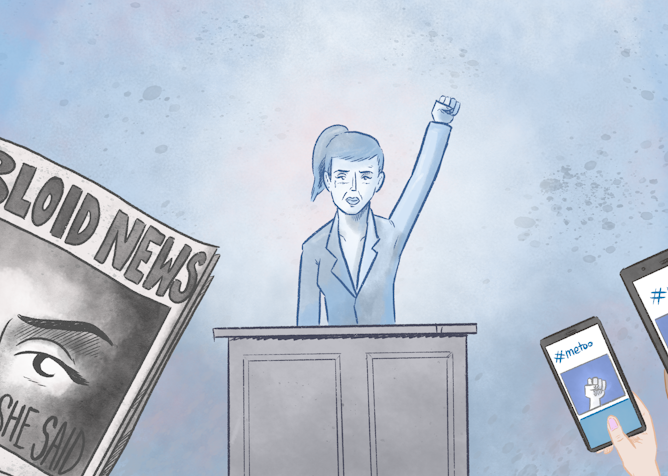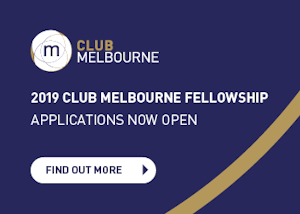|
|
|
Editor's note
|
|
On International Women’s Day, we launch a global series on the impact of the #MeToo movement, with contributions from The Conversation teams in the US, Canada, France, Africa, Indonesia and Spain on how the global movement has affected a particular aspect of life in their own countries. In Australia, Bianca Fileborn examines how the movement has changed the way violence against women is written about in the media - including social media. She writes that although the impact has been significant, there is still a long way to go.
It’ll take a very long time until we’ve as many women as men working as chief executives - about 80 years, or the rest of the century until 2100 according to new research by Rebecca Cassells and Alan Duncan. They’ve examined rates of progress industry by industry and identified what’s holding us back.
Recently, ecologist Arian Wallach took a detailed look at her CV – and realised it was gender-biased. She counts only a few women scientists among recent grant collaborators and publication co-authors. Now she’s on a mission to improve the diversity in her professional networks, and has a clear plan in mind: reach out to and work with women at every reasonable opportunity.
|
Amanda Dunn
Section Editor: Politics + Society
|

|
|
Top story
|

Though #MeToo has changed some aspects of media reporting, there is still much to be done.
Wes Mountain/The Conversation
Bianca Fileborn, University of Melbourne; Rachel Loney-Howes, University of Wollongong; Sophie Hindes
The #MeToo movement brought to light the extent of sexual violence in the community, largely through the media. But there is still a long way to go to overturn stereotypes and shut down online abuse.
|

Things are changing quickly in lower management, but at the very top there remains a hard-to-attack barrier.
Shutterstock
Rebecca Cassells, Curtin University; Alan Duncan, Curtin University
The hard nuts to crack are getting women into chief executive positions and getting them paid as much.
|

Most of us make daily decisions about who we choose to work and collaborate with. So what if we used that to improve professional diversity?
rawpixel / unsplash
Arian Wallach, University of Technology Sydney
A confession: I can count on a single hand the number of women I have invited to collaborate with me on publications and grants.
|
Business + Economy
|
-
Toby Boraman, Massey University
Last year, more than 70,000 workers walked off their jobs in New Zealand – the highest number of people on strike since the late 1980s. The reasons for the strike wave are political and economic.
-
Mazlan Maskor, The University of Queensland
Ole Gunnar Solskjaer's has revived one of sport's most revered brands. Here are some reasons for his leadership success.
-
Richard Holden, UNSW
The treasurer says 2018 was a year of two halves, but there were signs of a downturn well before mid year.
-
Danielle Logue, University of Technology Sydney; Gillian McAllister, University of Technology Sydney
Gender lens analysis identifies risks and opportunities early. It is catching on.
|
|
Science + Technology
|
-
Lisa Harvey-Smith, UNSW
You can support career development by nominating a deserving scientist, innovator or science teacher for recognition through a prize or award.
-
Michael Milford, Queensland University of Technology; Peter Stratton, The University of Queensland
The new Captain Marvel movie takes us back to the 1990s with a look at some of the technologies of the day. Do people still use pagers?
|
|
Health + Medicine
|
-
Ian Musgrave, University of Adelaide
The amount of alcohol you'd have to drink before glyphosate posed even a negligible risk would harm you well before the glyphosate would.
|
|
Politics + Society
|
-
Michelle Grattan, University of Canberra
Both Gaetjens and Frydenberg might reflect, incidentally, that this, the first budget for each of them, is likely to be their last - if the opinion polls are right.
-
Tony Walker, La Trobe University
No matter who forms government after the next election, managing Australia's relationship with China will continue to be a major challenge, and vitally important in a region remaking itself.
-
Heather Came, Auckland University of Technology; maria.haenga-collins@aut.ac.nz, Auckland University of Technology; Tim McCreanor, Massey University
Māori and Pasifika leaders' experience of racism in government advisory groups suggests ongoing inequities in New Zealand health policy.
-
Bianca Fileborn, University of Melbourne
Despite some progress in recent years in addressing gender-based violence, there is still a long way to go. A concerted and holistic approach is needed.
-
Kathleen Daly, Griffith University; Juliet Davis, Griffith University
A year after it was introduced, the National Redress Scheme has strayed a long way from the recommendations of the royal commission.
|
|
Environment + Energy
|
-
Robert Glasser, Australian National University
With heatwaves, droughts and fires all on the rise, the federal government is urged to merge its separate strategies on disaster resilience and climate readiness.
-
Bradley Smith, CQUniversity Australia; Corey J. A. Bradshaw, Flinders University; Euan Ritchie, Deakin University; Justin W. Adams, Monash University; Kylie M Cairns, UNSW; Mathew Crowther, University of Sydney
Of all Australia’s wildlife, one stands out as having an identity crisis: the dingo. New research has found the dingo is its own species, distinct from 'wild dogs'.
|
|
Arts + Culture
|
-
Stephen Muecke, University of Adelaide
It's time for a more reasonable, hybrid definition of civilisation that incorporates our Indigenous heritage.
-
Sandra D'urso, University of Melbourne
One of Australia's most prominent playwrights has reimagined the infamous encounter between Hollywood icon Mae West and photographer Diane Arbus.
-
Catherine Strong, RMIT University
Sexual abuse in the music industry is a systemic, ongoing problem that won’t be resolved by just hacking away at the canon.
-
Jonathan Barrett, Victoria University of Wellington
Establishing artists could benefit if New Zealand introduces a proposed capital gains tax that excludes any profit made on the sale of collectables and artworks.
|
|
Cities
|
-
Rachael Wallis, University of Southern Queensland
Your identity changes when you move house and, if that's to a different community, your clothes change along with you.
|
|
| |
Featured jobs
|

|
University of Melbourne — Parkville, Victoria
|

|
UNSW Sydney — Sydney, New South Wales
|

|
Griffith University — Nathan, Queensland
|

|
Monash University — Clayton, Victoria
|
|
|
|
| |
| |
| |

|
| |
| |
| |
Featured events
|

|
RACV City Club, 501 Bourke Street, Melbourne, Victoria, 3000, Australia — Monash University
|

|
Learning and Teaching building, 19 Ancora Imparo Way, Clayton campus, Monash University, Clayton, Victoria, 3800, Australia — Monash University
|

|
Monash Conference Centre, Level 7, 30 Collins Street, , Melbourne, Victoria, 3000, Australia — Monash University
|

|
The University of Sydney, Sydney, New South Wales, 2006, Australia — University of Sydney
|
|
|
|
| |
| |
| |
| |
| |
|
|
|
|
|
|
|